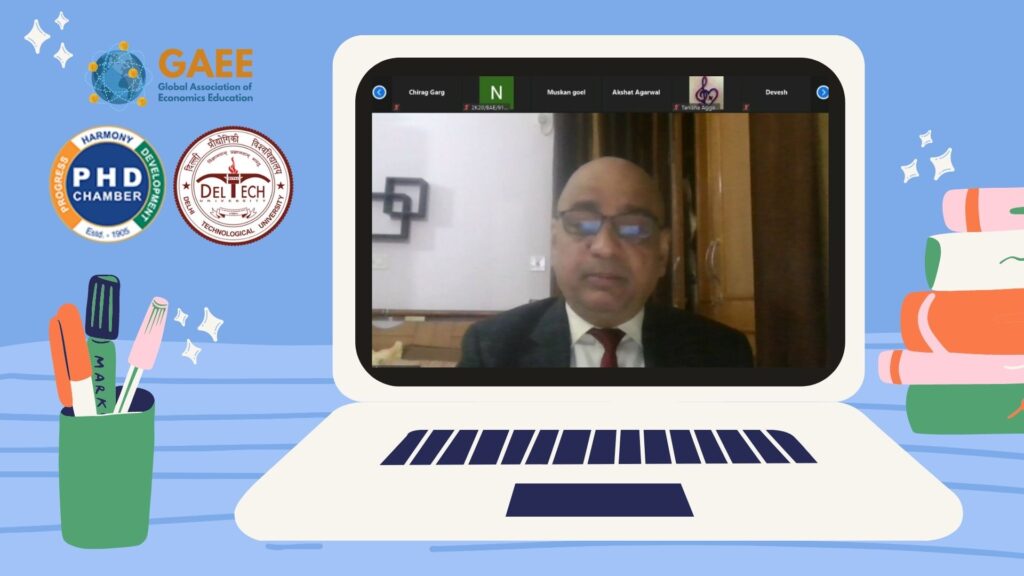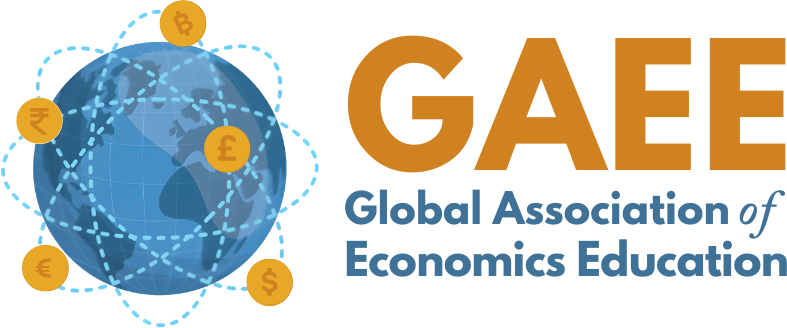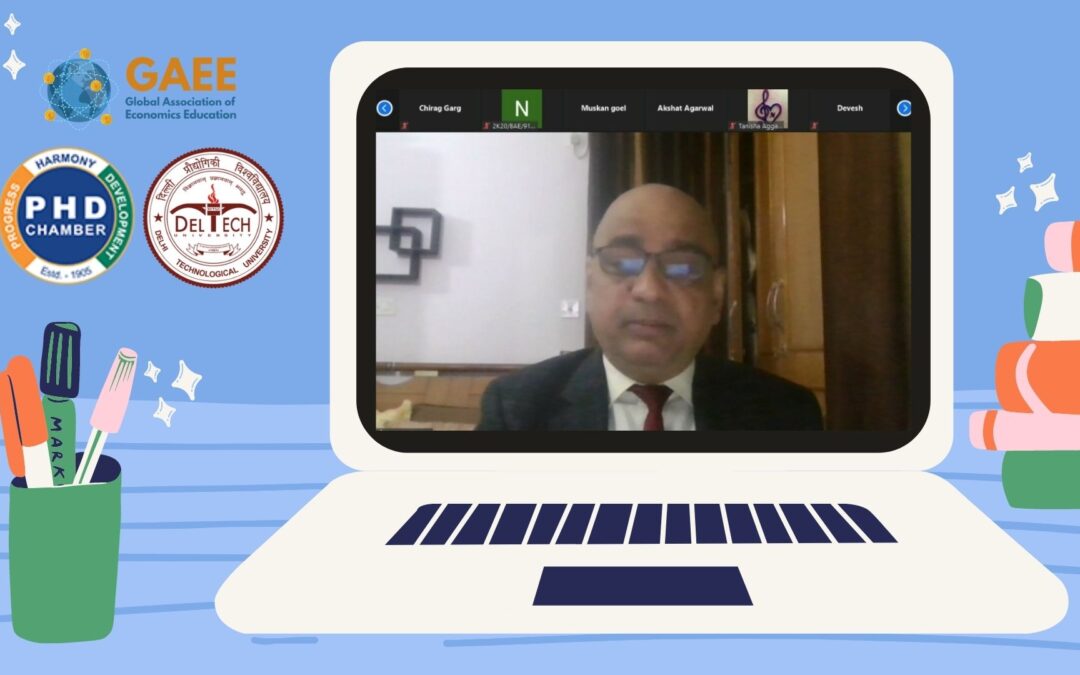The South Asian country was among the worst-hit by the pandemic, with eleven million people so far being infected with the coronavirus. With lockdowns and severe restrictions to movement, the opportunity to engage in conversations with top experts in economics has proved to be extremely rare and inaccessible for many Indian students.
Nonetheless, the Global Association of Economics Education (GAEE) chapter at the Delhi Technological University (DTU)—India’s highest-ranked engineering college, according to Times Engineering Rankings 2020—had managed to spearhead innovative initiatives to fill this curricular gap. Since the start of this year, despite the resurgence of the pandemic, GAEE DTU has hosted various business case competitions for its members, including the signature “Outthink” business case competition under the supervision of Dr. Rajesh Sharma, a professor of economics at DTU.
Early last month, the chapter had hosted various webinars with India’s leading figures in academia and public service. On 20th February, the chapter hosted an interactive webinar in association with the Women’s Indian Chamber of Commerce and Industry (WICCI). Discussing India’s 2021 National Budget and its effect on small businesses and startups, the event was open not only to GAEE DTU’s thirty-member-strong base but also all of GAEE North India’s chapters.
On February 28th, GAEE DTU hosted Dr. S. P. Sharma—Chief Economist & Director of Research at PHD Chamber of Commerce and Industry—to address students on the topic of “Microfinance Boost: Scope and Challenges Ahead for India.” Dr. Sharma argued that the post-covid Indian economy would show positive progress, especially for the budding entrepreneurs and in the microfinance domain. The renowned Indian economist also gave insights on the role of the Indian government’s microfinance institutions and their contribution to India’s economic growth.

According to Abhishek Tayal, founding president of the DTU chapter, the session was “indeed interactive” with “the participation of around 40 students.” He particularly enjoyed the Q&A segment at the end of the session, where students were given a chance to “feed their curiosity and clear all their doubts pertaining to the topic discussed.”
The Global Association of Economics Education (GAEE)’s chapters in India is preparing for a new influx of events, webinars, and other academic opportunities for its members and communities in the coming months, with the inter-chapter collaboration being cited as a top priority, according to an internal memo shared with GAEE International. Interested students in India are welcome to apply to GAEE by filling out the application at https://gaee.org/india-chapter-apply or email [email protected].

